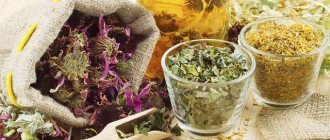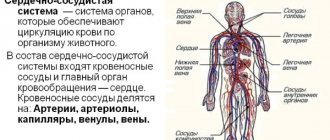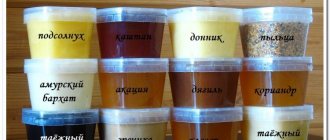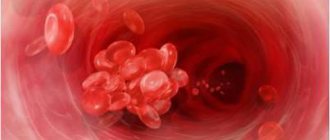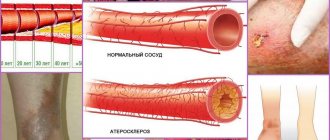The most common symptoms of hemorrhoidal disease are discomfort, pain, itching and burning in the anus. Also, most patients encounter such an unpleasant phenomenon when hemorrhoids bleed. Moreover, bleeding of hemorrhoids frightens patients more than other signs of this disease.
Considering the prevalence of this problem, the question of how to stop bleeding from hemorrhoids is quite relevant today. Therefore, we suggest that you consider it. But first, let’s look at why and when bleeding occurs with hemorrhoids.
Treatment methods Symptoms and signs
05/26/201805/26/2018 0 Comment
- 1 What are bleeding hemorrhoids?
- 2 Why do hemorrhoids bleed?
- 3 How to determine hemorrhoidal bleeding?
- 4 How to stop bleeding from hemorrhoids? First aid
- 5 Remedies for the treatment of bleeding hemorrhoids
- 6 Oral medications
- 7 Rectal suppositories
- 8 Ointments
- 9 Hemorrhoids with blood: how to treat with traditional methods?
- 10 What is the danger of bleeding with hemorrhoids?
- 11 Prevention of bleeding from hemorrhoids
- 12 Results
What are bleeding hemorrhoids?
Bleeding or bloody hemorrhoids are hemorrhoids, the course of which is accompanied by the release of blood of varying intensity from the rectal passage or external hemorrhoids.
It is also important to note that with hemorrhoids, blood almost always bleeds during or some time after defecation, that is, there is a clear connection with bowel movements. This sign sometimes plays a key role in the differential diagnosis of hemorrhoids and other diseases of the anorectal area.
In addition, it must be said that if hemorrhoids bleed, then the disease has already reached the second stage, since this symptom is not typical for the initial stage of the disease.
What to include in the daily menu for bleeding hemorrhoids
Undoubted benefits for patients will be apples and beets, carrots, zucchini and cucumbers, peaches. Include prunes in your diet, and don’t forget about dried apricots, because they are natural laxatives.
The regular menu should include:
- Water-based porridge;
- Meat and fish soups are not very fatty;
- Wholemeal bread;
- Fish and meat, respectively, are low-fat.
Sweet soda, strong coffee and tea will have to be removed from the diet. They also provoke tissue dehydration and lead to constipation. Starchy foods may be on the menu, but not every day: we are talking about potatoes and rice. Do not get carried away with pasta, fresh bread, baked goods, sweets, especially pastry creams.
Every day on your table there should be salads seasoned with olive or other vegetable oil. Also, in order for the intestines to work better, you need to drink one tablespoon of oil every day. Include fermented milk foods in your menu - kefir, natural yogurt, bifidok. At night, you can safely drink a glass of low-fat kefir.
This will make it easier to cope with bowel movements and achieve soft stools that will not injure the inflamed rectum.
Why do hemorrhoids bleed?
The main cause of hemorrhoids is venous insufficiency of the vessels of the anorectal region, which develops due to loss of tone of their walls. Under the influence of various unfavorable factors, the cavernous veins of the anus become filled with blood, expand and become deformed, transforming into nodes that are commonly called hemorrhoids.
Depending on where the hemorrhoids are located, internal and external hemorrhoids are distinguished.
As hemorrhoidal disease progresses, hemorrhoids enlarge and their walls become thinner, so even the slightest damage to them leads to bleeding.
If hemorrhoids bleed, then most often the following reasons could lead to this:
- constipation _ When passed through the rectal canal, hard feces irritate and injure hemorrhoids, as a result of which they begin to bleed. If constipation is chronic, then the damage on the surface of the cones does not have time to heal, so blood will flow with each bowel movement;
- diarrhea _ Chronic diarrhea causes the mucous membrane that covers the bumps to become irritated by liquid feces, causing them to become inflamed . In turn, chronic inflammation triggers the process of degeneration of the epithelium, as a result of which it becomes thinner, which causes bleeding;
- anal tears. Cracks in the anal ring appear due to constipation or impaired microcirculation in the tissues of the anus. This complication of hemorrhoidal disease is often accompanied by bleeding;
- "wrong" visit to the restroom . Severe or prolonged straining during defecation provokes a surge in pressure in the cavernous vessels, which can cause them to burst and bleed;
- untimely contact with a specialist , which led to the appearance of an advanced form of hemorrhoidal disease;
- excessive physical activity and lifting heavy objects . These factors also cause a sharp increase in pressure in the hemorrhoidal veins, which leads to their rupture and bleeding;
- anal sex . During such sexual intercourse, hemorrhoids can become injured and bleed.
A specialist, a proctologist, knows for sure how to avoid bleeding with hemorrhoids and what to do if it occurs. Therefore, do not engage in self-diagnosis and self-medication, but immediately consult a doctor. Indeed, under the mask of hemorrhoidal bleeding, a more serious disease, such as colon cancer, may be hiding.
Why do hemorrhoids cause bleeding?
Hemorrhoids can remain unchanged for a very, very long time. But when the blood flow in the venous plexuses of the rectum is disrupted and they literally fill with blood, hemorrhoidal disease occurs. As the disease develops, the nodes increase in size and periodically become inflamed. Internal vascular cones reduce the rectal lumen, making defecation difficult.
Why does bleeding start:
- If a person suffers from constipation, then they will lead to the fact that dense feces passing through the anal canal will injure the enlarged nodes. Therefore, hemorrhoids with bleeding occur. And since you empty your intestines often, the injury sites simply do not have time to heal. Therefore, bleeding occurs repeatedly.
- Poor blood circulation and congestive processes in the pelvic area lead to the thinning of the venous wall. Because of this, small erosions and even anal fissures form. During defecation, they are also damaged - and this is also a provoking factor for bleeding.
- Bleeding is caused not only by constipation, but even by long-term diarrhea: because of it, the rectal mucosa also becomes inflamed and, as a result, becomes thinner.
- Sitting on the toilet for a long time, as well as increased straining during bowel movements, also leads to bleeding.
- Another reason for the development of bleeding is an already advanced disease, very large affected nodes and, of course, ignoring the problem.
- Hemorrhoidal bleeding is not always really voluminous bleeding. A couple of drops of blood on toilet paper is already bleeding. These drops can also be found on the surface of stool and underwear. There is usually no pain, and the discharge quickly disappears after defecation.
- But with complicated hemorrhoids, blood loss can be significant, and it is not always possible to stop it. These cases certainly require emergency hospitalization.
- What complications can hemorrhoidal bleeding lead to?
Why bleeding occurs with hemorrhoids is already known, but what to do about it? Of course, treat. Severe hemorrhoidal bleeding can lead to the development of anemia. If every day the human body loses 50-100 ml, then it is no longer able to replenish the lack of blood on its own, causing the hemoglobin level to drop to critical levels.
If the patient does not go to the doctor when hemorrhoids are bleeding, then the situation may reach the point where blood loss will be even more significant. It is also possible to develop severe anemia: the patient will have pale skin, he will be weak and apathetic, blood pressure will drop, and dizziness will begin. Against this background, a sharp decrease in immunity may occur. Chronic diseases will worsen, and various infectious processes may develop.
How to determine hemorrhoidal bleeding?
Blood discharge during bleeding from hemorrhoids can be small or massive.
Light bleeding is typical in the initial stages of the disease, and can be seen by streaks of blood in the stool, bloody drops on toilet paper or underwear. In addition, with early hemorrhoids, blood will flow only during bowel movements.
With advanced hemorrhoids, quite severe bleeding can develop, which leads to large blood loss and even hemorrhagic shock.
Hemorrhoidal disease is not characterized by bloody stools or blood clots in the stool. The appearance of such discharge requires careful differential diagnosis by an experienced specialist.
Heavy bleeding from hemorrhoids must be stopped in a hospital setting, since you are unlikely to be able to cope with this problem on your own at home. Therefore, if such a complication occurs, it is necessary to call an ambulance, which will take you to a specialized department for further treatment.
Symptoms of pathology
You can only tell if you are bleeding visually. Such discharge is not accompanied by pain.
Stages 1 and 2 – marks can be found on toilet paper after defecation. The discharge stops immediately after bowel movement.
Stages 3 and 4 – blood oozes out in a stream. Sometimes it floods the entire toilet. The discharge stops after defecation.
If blood continues to flow after bowel movement, you must call an ambulance!
Do not confuse with other diseases
Not only with hemorrhoids can there be discharge from the anus! Bruises are often diagnosed with other problems in the body.
| Possible causes of bleeding | hemorrhoidal disease, anal fissures, ulcerative proctitis, excoriation of the skin, proctitis, condylomatosis, malignant tumor, prolapse of the intestine and mucous membrane, rectal cancer, Crohn's disease, polyps, vascular malformations, trauma. |
The following features are characteristic of hemorrhoidal discharge:
- At first, dark-colored blood is released, and then it turns scarlet.
- Basically, after defecation, the blood stops on its own.
- Hemorrhoidal bleeding does not appear at rest.
- Discharge occurs when pressure in the veins increases (during defecation, strong pushing, lifting heavy objects).
If blood from the anus occurs at rest and in addition to it other discharges are additionally observed, then this indicates other diseases.
For example, these are the signs:
- Malignant tumor.
- Polyps in the rectum.
- Anal fissure.
- Damage to the body of the rectum.
- Consequences of unsuccessful medical procedures, etc.
If you experience bleeding, you do not need to immediately diagnose yourself with hemorrhoids. It is necessary to undergo an examination and find out what disease caused the appearance of such discharge.
How to stop bleeding from hemorrhoids? First aid
If hemorrhoids are bleeding, before providing medical assistance, you can use the following recommendations:
- try to calm down, because stress leads to increased blood pressure and, accordingly, increased blood loss;
- Wash yourself with cool water without soap;
- If external hemorrhoids are bleeding, you can apply a lotion with cold water. Under the influence of low temperature, the vessels narrow and the permeability of their walls decreases, as a result of which the external hemorrhoidal node stops bleeding. To make a lotion, take a piece of sterile gauze folded in several layers, moisten it with cold water and apply it to the external nodes. You can also use an ice pack wrapped in a towel. The duration of lotions and compresses with cold water should not exceed 15 minutes, as you can catch a cold;
- You can get rid of internal hemorrhoids with bleeding using ice suppositories. To prepare such inserts, you need to pour plain water or a decoction of a medicinal plant (chamomile, oak bark, yarrow, blueberry, calendula and others) into cones made of thick paper, which are placed in the freezer for 2-3 hours. The frozen candle is lubricated with vegetable oil and inserted into the anus;
- use a hemostatic sponge. For external hemorrhoids, apply it to the bleeding node for 2-3 minutes, and for internal hemorrhoids, insert it into the rectum;
- take one of the hemostatic drugs orally. Dicynone, Aminocaproic acid and Vikasol are highly effective in this case.
The measures listed can only be used as first aid. Therefore, even if you get rid of bleeding on your own, you still have to see a proctologist for a thorough examination and comprehensive anti-hemorrhoidal treatment.
How to use folk remedies?
As with the treatment of any disease, it is first necessary to act on the cause. A proper diet and active lifestyle are the best way to reduce the risk of hemorrhoidal bleeding, and folk remedies and medications will help get rid of both the symptoms and the disease itself. If you do not have the necessary medications on hand, you can treat bleeding hemorrhoids using warm and cold baths:
- Adding herbs to the water that have an antiseptic, astringent and anti-inflammatory effect will help get rid of discomfort and keep the anus clean. A fresh decoction of oak bark, chamomile, and wormwood, diluted in warm water, is used.
- Cold water constricts the blood vessels, thereby stopping the bleeding from hemorrhoids. Therefore, a 3-minute cold bath is also a common method.
- Another quick way to stop bleeding is to make an ice candle at home using a cone-shaped folder cover and water. Using such a suppository for 5-7 seconds will help quickly stop bleeding.
The most effective ways to combat hemorrhoids
Potato pulp is used to prepare compresses.
The abundance of dosage forms makes it easy to select an effective treatment for each stage of the disease. After all, internal and external hemorrhoids require different approaches and intensity of therapy, and the presence of bleeding can narrow the choice of drugs. To combat the disease at home, they resort to the following methods:
- Compresses are used to treat external hemorrhoids. In this case, ointments, clay, decoctions of medicinal herbs, potato pulp and even cocoa butter are applied to the gauze.
- Enemas are given to soften stool, cleanse the intestines, relieve inflammation and eliminate itching. Depending on the purpose, their composition includes herbal decoctions, various oils and salt solutions. For external nodes and bleeding, enemas are contraindicated.
- You can make suppositories for the treatment of hemorrhoids yourself or purchase them. Most often they are inserted into the anus at night. Some rectal suppositories can quickly stop bleeding and have a vascular-strengthening, anti-inflammatory and analgesic effect.
Celandine, bay leaf, potatoes and nettle for hemorrhoids
Medicinal plants have a number of properties that facilitate the treatment of bleeding hemorrhoids, and in many ways are not inferior to pharmaceutical drugs. Popular folk methods of combating the disease include the use of the following means:
For therapeutic purposes, take a decoction of bay leaves.
- In the treatment of hemorrhoids with bleeding, celandine has found its use as an excellent antiseptic, antispasmodic and anti-inflammatory drug. Good results are shown by using gauze swabs soaked in juice and inserted into the anus, as well as suppositories made from lard twisted with celandine.
- Due to the content of a large amount of essential oils, bay leaf is also a powerful remedy in the fight against disease. The infusion after a course of oral administration eliminates itching, relieves tissue swelling and inflammation. Enemas made from a decoction of the leaves are also effective.
- Potatoes are effective in treating external hemorrhoids. A compress of grated pulp eliminates discomfort, and cut out candles help cure the internal inflamed knot in the early stages. Potatoes are not contraindicated for women during pregnancy.
- Nettle has a hemostatic effect for hemorrhoids, additionally relieving inflammation of surrounding tissues. Ingestion of a decoction of the plant, microenemas and baths can make you forget about bleeding, as well as stop the progression of the disease.
Remedies for the treatment of bleeding hemorrhoids
Hemorrhoids with slight bleeding can be treated effectively at home, respectively, under the supervision of a specialist. In case of severe hemorrhoidal bleeding, hospitalization in the surgical department is indicated.
Bloody hemorrhoids, like any other form of this disease, can be cured only with the help of complex antihemorrhoidal therapy, which consists of the following components:
- lifestyle correction (giving up bad habits, increasing physical activity);
- diet;
- taking systemic drugs;
- use of local dosage forms.
Following a diet allows you to normalize intestinal function, eliminating constipation or diarrhea. Depending on the type of disorder of the digestive tract, the proctologist will prescribe appropriate nutrition. For constipation, the diet should be enriched with plant fiber, which has a positive effect on intestinal motility. At the same time, during diarrhea, foods that irritate the intestines and activate peristalsis are excluded from the patient’s menu.
If conservative treatment is ineffective, surgical correction is resorted to.
Consider medications that can be used to treat bleeding hemorrhoids.
Proper diet for bleeding hemorrhoids
The doctor decides how to treat bleeding hemorrhoids, but in addition to ointments, suppositories and tablets, he will definitely prescribe a therapeutic diet to the patient. Nutrition for hemorrhoidal disease involves avoiding foods that cause a rush of blood to the pelvic organs. If you eat such food, the injured vessels of the hemorrhoids will not withstand the pressure, resulting in bleeding.
Such food may include:
- Herbs and spices;
- Various sauces with spicy ingredients;
- Smoked and dried products;
- Pickles, pickled food;
- Canned vegetables;
- Alcohol.
You should also avoid foods that cause excessive gas formation and fermentation in the gastrointestinal tract. You should not eat vegetables with coarse fiber (white cabbage, radishes and corn), flour yeast products, sweets, you will also have to give up kvass.
The peculiarity of the diet for bleeding hemorrhoids is that nutrition should improve intestinal motor functions, normalize the functioning of the digestive organs, and facilitate bowel movements.
Such a laxative diet with a high amount of fruits and vegetables, dairy products will help to subside adverse symptoms and eliminate bleeding.
Preparations for oral administration
Since the cause of hemorrhoids is venous insufficiency caused by a weakening of the tone of the vascular walls, all patients must be prescribed venotonic drugs. With the help of venotonic agents, it is possible to restore the normal tone of the cavernous veins and strengthen their walls.
The following venotonics may be the drugs of choice in this case:
- Detralex;
- Troxevasin;
- Venarus;
- Phlebodia 600;
- Escusan and others.
The course of treatment with venotonics takes on average 4 weeks. The selection of drugs should be done by a specialist, since each medicine has a strict list of indications and contraindications.
Treating hemorrhoids at home
It’s worth mentioning right away that it is possible to treat hemorrhoids while not in the hospital, but at home (especially in the initial stages), but this treatment must be fully agreed with the attending physician. As is well known, prevention is the best way to treat any disease, hemorrhoids are no exception. First of all, it is worth making a small adjustment to your lifestyle taking into account the disease.
It's worth starting with nutrition . If possible, it is worth removing simple carbohydrates from the diet (as a rule, they are represented by baked goods, baked goods, and confectionery products) and replacing them with complex carbohydrates in the form of grain bread, vegetables, fruits and herbs. Tea and coffee should be kept to a minimum and switch to regular still water. This set of nutritional measures will help normalize stool, which is very important in the treatment of bleeding hemorrhoids. It is also recommended to exclude alcohol in any form (even beer).
During an exacerbation of hemorrhoids, it is worth giving up doing strength sports, as well as horseback riding and cycling. At the same time, you should switch to jogging and walking, which are very useful in case of exacerbation of hemorrhoids. Special exercises, including Kegel exercises, will help a lot.
If hemorrhoids worsen, you should spend more time at home in a lying position rather than sitting on a chair. You should resort to the simplest and most reliable methods of treatment. To begin with, it is quite suitable to use lotions with a weak solution of potassium permanganate (you can apply it constantly, there is no harm from it), as well as taking 2-4 baths per day with a warm solution containing chamomile decoction (two tablespoons of flowers of this plant, per 200 milliliters water, add boiling water and let it brew). The bath should be taken for ten, but no more than fifteen minutes.
To relieve pain, you can use ointments that contain painkillers analgesics. These are ointments Relief A, Emla, Nefluan. If there is thrombosis, Nigepan ointment can be used as an anticoagulant. If the inflammatory process occurs quite well, it can be removed with Mafenid and Levomikol ointments.
Phlebotropic drugs can also be used to treat hemorrhoids. These can be Troxevasin (2 capsules per day for 2-4 weeks), Detralex (3 tablets twice a day for 4 days, then two tablets twice a day for another 3 days, then you should switch to taking two tablets per day, the course of treatment is 3 months) or Diosmin (1200-1800 milligrams of the drug during the first three days, which should be divided into two doses, then switch to taking one, then take 600 milligrams per day for two months).
Taking these tablets should be systemic in nature, and the course of treatment should not be less than one week. Rectal suppositories occupy a special place in the treatment of hemorrhoids.
Rectal suppositories
Rectal suppositories are used mainly for internal hemorrhoids, which are accompanied by rectal bleeding. When choosing medications, preference is given to multi-component suppositories, which not only stop bleeding, but also relieve pain, swelling and inflammation.
The most effective suppositories with a hemostatic effect today are :
- Relief . This drug contains phenylephrine, a substance that constricts blood vessels, thereby stopping bleeding;
- Natalsid . These suppositories consist of brown algae extract, which can rightly be called a natural hemostatic;
- methyluracil suppositories . Methyluracil accelerates the healing of injuries, which helps stop bleeding;
- candles with sea buckthorn oil . Sea buckthorn oil accelerates tissue regeneration and increases the tone of venous vessels. In addition, this oil contains enveloping substances that cover the vessels with a protective film;
- adrenaline candles . Adrenaline is a powerful vasoconstrictor. Therefore, when it is used, bleeding immediately stops;
- Proctosan suppositories . This drug contains bismuth and titanium compounds, which envelop hemorrhoidal vessels, stopping bleeding.
Drug treatment of hemorrhoids with bleeding
Both internal and external hemorrhoids bleed under the influence of many factors. They interact and reinforce each other. In the pathogenesis of hemorrhoid bleeding, pathophysiological factors are important:
- thinning of the venous wall,
- stagnation of blood in the nodes,
- reactive inflammation of the venous wall,
- reduction of beneficial microflora,
- bleeding disorder,
- increased vascular permeability,
- micro- and macrotrauma of the mucous membrane.
Hemorrhoidal node
Based on pathogenesis, suppositories must include active substances that affect each of its links. When starting drug treatment, you need to get rid of constipation and remove blood stagnation. This is achieved by proper nutrition, the use of laxatives and exercises aimed at strengthening the pelvic floor muscles and improving microcirculation of the pelvic organs.
It is also worth strengthening the vascular wall, toning the veins and their valve apparatus. It is necessary to remove inflammatory phenomena and normalize the microflora. For this purpose, drugs are used in the form of tablets. It is more relevant to use drugs via rectal administration. You need to learn in advance how to treat bleeding hemorrhoids so that you are prepared.
Ointments
Hemostatic ointments are a universal remedy, as they are successfully used for internal and external hemorrhoids. Most ointment preparations have applicators that are designed to deliver the medication into the rectum.
Most often, experts prescribe the following hemostatic ointments:
- Relief . This ointment has the same composition as the suppositories, so it instantly stops bleeding.
- Proctosan . Has the same properties as Proctosan suppositories;
- Methyluracil ointment . This drug accelerates the healing of anal tears, ulcers and erosions of the anus, which often cause bleeding;
- Procto-Glyvenol . This ointment contains esculoside, which reduces the permeability of blood vessels and strengthens their walls, thereby stopping bleeding;
- Bezornil . This ointment consists of natural ingredients of plant and mineral origin, which have anti-inflammatory, analgesic, healing and hemostatic effects;
- Fleming's ointment . This drug has exclusively natural ingredients such as witch hazel, calendula, aesculus and menthol, as well as a zinc compound. Fleming's ointment effectively stops bleeding, relieves inflammation and pain from hemorrhoids.
Bloody hemorrhoids absolutely cannot be treated with suppositories and ointments that contain heparin, since this direct anticoagulant will only increase blood loss. A proctologist will help you avoid mistakes when choosing medications, because only a specialist knows reliably the mechanism of action of each medicine, its composition and possible side effects.
Causes of the disease and its manifestations
Hemorrhoids occur as a result of poor circulation in the veins of the rectum. Inflamed vessels form nodes, which are divided into internal and external depending on their location and are injured during physiological processes. The cause of the pathology may be:
- sitting at a desk for many hours and lack of activity;
- hereditary factor;
- severe stress and depression;
- pregnancy and childbirth;
- frequent consumption of alcohol, fatty, spicy and smoked foods;
- gastrointestinal disorders, manifested by frequent constipation and diarrhea;
- a sharp increase in physical activity.
Symptoms of bleeding from hemorrhoids depend on the stage:
| Stage | Symptoms | Bleeding |
| I | Itching in the perineum, hemorrhoids are enlarged, but do not fall out | Blood appears during bowel movement |
| II | Painful sensations, nodes fall out of the anus during physical activity and are easily reset on their own | Moderate during bowel movements or bloody exudate on clothing |
| III | The anus is swollen, the nodes fall out as a result of the slightest load and are reduced only with the help of hands | External hemorrhoids bleed heavily. Regularly leave marks on clothes |
| IV | Redness of the anus, nodes cannot be reduced | Heavy bleeding from the anus, possible anemia |
Hemorrhoids with blood: how to treat with traditional methods?
In addition to traditional medications, for bleeding hemorrhoids, you can use folk remedies that will complement the treatment and speed up recovery.
We bring to your attention the most popular folk methods and remedies used for bloody hemorrhoids:
- cool baths with decoctions of medicinal plants. The solution for the procedure should be at room temperature, and the bath itself should not last longer than 7 minutes. Also, during the procedure, it is necessary to cover the genitals with your hand so as not to catch a cold;
- microenemas. For microenemas, you can take both decoctions of medicinal herbs and chilled vegetable oil. The juice of raw potatoes and beets also has hemostatic properties;
- ice compress;
- ice candles;
- lotions with cold water.
Any folk remedy must be approved by the attending doctor. You also need to understand that folk remedies cannot be used as monotherapy, since their effectiveness is not enough to completely get rid of bleeding.
Manifestation
Bleeding is usually detected after going to the toilet. The volume of bloody discharge gradually increases, blood appears after each physical effort of a person. In addition, the bleeding becomes massive.
What are the characteristics of bleeding hemorrhoids:
- droplets of scarlet color, no clots;
- there is no painful accompaniment, but it may appear if anal fissures are added to hemorrhoids;
- in the initial stages, blood may appear only after going to the toilet; the severe stage is characterized by sudden bleeding;
- When hemorrhoids prolapse, the bleeding intensifies and becomes more massive.
At the first hint of hemorrhoids, treatment should begin. Heavy bleeding is fraught with consequences, such as anemia. If the body loses more than one hundred milliliters of blood per day, then it itself cannot cope with its restoration. You may experience severe fatigue, dizziness and other problems. The immune system in this state does not work correctly, so there is a high probability of “catch” some kind of infection.
What is the danger of bleeding with hemorrhoids?
Both hemorrhoids and bleeding pose a potential danger to the health and life of the patient, because at any stage of the disease complications can develop, including the following:
- anemia. Anemia often develops with small, constant bleeding from the anus;
- hemorrhagic shock. This complication is typical for massive bleeding that occurs due to necrosis of hemorrhoids;
- formation of rectal fistulas;
- introduction of infection into the blood.
In addition, rectal bleeding can be a sign of serious diseases such as ulcerative colitis, colon polyposis, and rectal cancer.
Therefore, when the first signs of bleeding from the anus appear, you must immediately contact a specialist who will conduct a differential diagnosis, and then confirm or rule out the above diseases.
Prevention of bleeding from hemorrhoids
will help reduce the risk of hemorrhoidal bleeding :
- maintain an active lifestyle;
- give up bad habits;
- eat healthy and balanced;
- eliminate constipation or diarrhea in a timely manner;
- strictly follow medical recommendations.
Prevention
We examined in detail why hemorrhoids bleed. A doctor can best advise what to do in this case. Now let's talk very briefly about preventive measures. If you are worried about hemorrhoids, then to prevent bleeding you need to listen to some tips:
- you cannot drink strong tea, coffee, and especially alcoholic beverages;
- Do not overuse spices and spices;
- change your diet, eliminate junk food, replacing it with fruits, vegetables and cereals;
- follow the rules of personal hygiene, after each trip to the toilet you need to wash yourself, it is better to do this with decoctions of medicinal herbs;
- change your daily routine, move more, avoid prolonged sitting.
